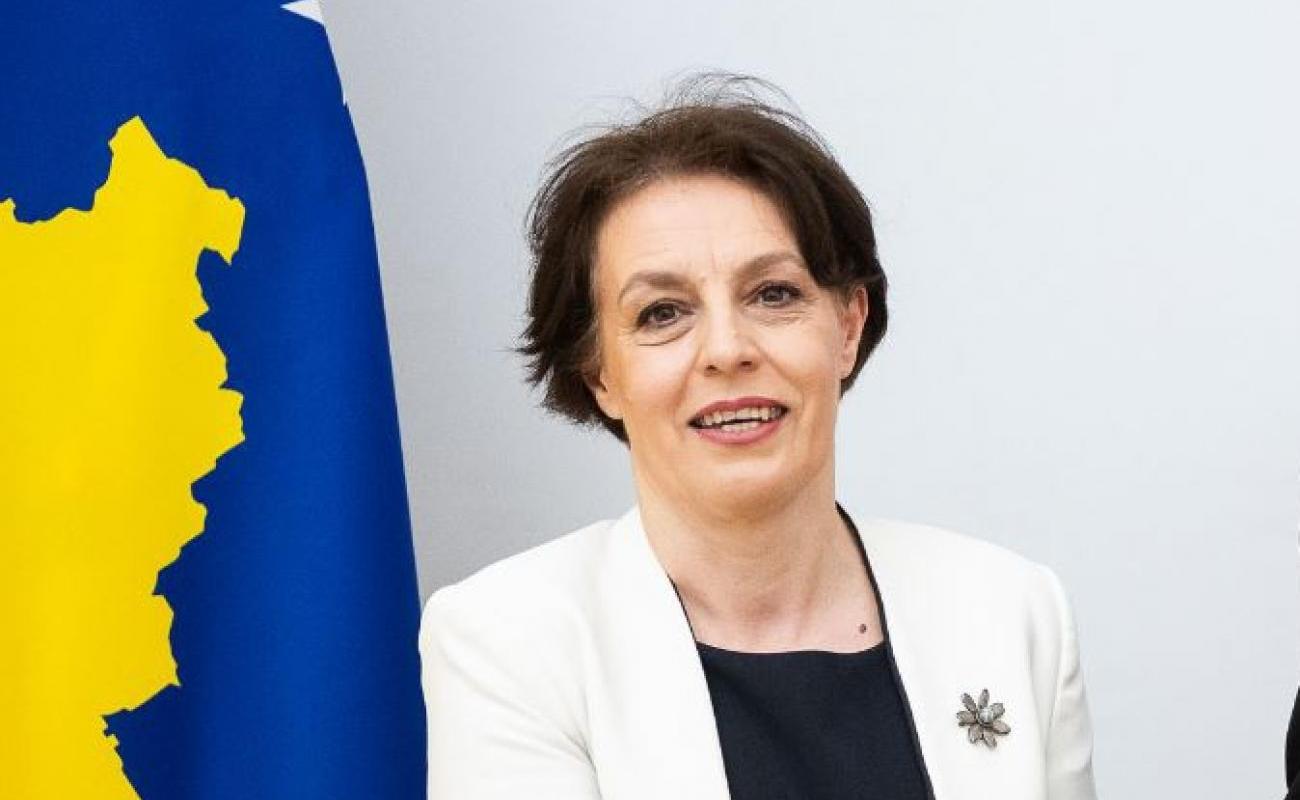Kosovo warns of more European wars if Russia wins in Ukraine

On 8 May, Kosovo’s Foreign Minister stated that for war not to spread further in Europe, Russia must lose its war in Ukraine. She said her nation’s support for Ukraine is unconditional, despite Kyiv not recognizing Kosovo’s independence, according to AP.
Kosovar FM Donika Gërvalla-Schwarz said her small Balkan nation, which became independent of Serbia in 2008, is constantly reminded of the aggressive intentions of both Serbia and its ally Russia.
“Ukraine hasn’t recognized the Republic of Kosovo as a state, but we really believe that we know exactly what Ukraine is going through,” she told The Associated Press during her visit to Poland on 8 May. “And we know that there is only one solution, not only for Ukraine, but for Europe. It can only be Russia to lose the war and Ukraine to win this war. Otherwise, Europe should prepare for other conflicts in our continent.”
Gërvalla-Schwarz told the AP that Kosovo, despite its “modest possibilities,” has endeavored to assist Ukraine, emphasizing its “unconditional support and sympathy.”
Meanwhile, pro-Russian Serbia, as an EU candidate state, is increasingly aligning itself with the adversaries of European Western democracies, stated Gërvalla-Schwarz, adding:
“You cannot be at the same time a candidate state of the European Union and be the proxy of Russia,” especially amid Russia’s declared war on Ukraine and the West as such, she stated.
In March, Kosovo’s Defense Minister, Ejup Maqedonci, pledged two military aid packages to Ukraine during the Ramstein-20 meeting in Germany. The first was to be delivered within a week, including trucks, tactical and armored vehicles. The second batch was going to be focused on supplying mortar and artillery shells.
After Russia’s annexation of Crimea in 2014 and during the 2022 Russian full-scale invasion of Ukraine, the government of Kosovo imposed sanctions against Russia and Belarus. In March 2022, Kosovo authorities abolished visas for Ukrainian citizens.
Russia used Kosovo independence precedent to justify its wars and land grabs
Russia cited the Kosovo independence precedent to justify its wars in Ukraine and Georgia, recognizing the alleged independence of Georgia’s Abkhazia and South Ossetia (2008), and Ukraine’s Russian-occupied Crimea (2014) and the regions of Luhansk and Donetsk (2022).
No state has ever sought to annex Kosovo after its separation from Serbia. Meanwhile, Russia, contrary to the Kosovo precedent it used to cite, promptly annexed Crimea just after it recognized the Ukrainian peninsula’s “independence.” Russia’s recognition of the so-called Donetsk and Luhansk “people’s republics,” both created and fully controlled by Moscow, took place days before its full-scale invasion of Ukraine in 2022, and months later Russia declared its annexation of the regions.
Russia’s annexation of Georgia’s South Ossetia is still pending for years, while the leaders of Abkhazia prefer to maintain the veneer of independence while remaining fully dependent on Russia.
Why Ukraine doesn’t recognize Kosovo
Kosovo’s Assembly (Parliament) unilaterally declared independence from Serbia in 2008, garnering diplomatic recognition as a sovereign state from 104 UN member states. Serbia does not officially recognize Kosovo’s sovereignty and maintains its claim over it as an autonomous province.
Ukraine has never acknowledged Kosovo’s independence and refers to Kosovo as “Kosovo (Serbia)” in its official documents. Since 2019, Ukraine recognizes Kosovo’s civilian passports but does not accept its diplomatic and service passports.
After the International Court of Justice’s 2010 recognition of the legality of Kosovo’s government decision to declare independence from Serbia, Ukraine’s Ministry of Foreign Affairs affirmed its stance on non-recognition of Kosovo’s independence. An MFA representative cited Ukraine’s commitment to respecting the sovereignty and territorial integrity of all states within internationally recognized borders.
This position was later reaffirmed in 2019, with an MFA representative also stating that “theissue of potential recognition of Kosovo depends primarily on the results of dialogue and reaching relevant agreements between Serbia and Kosovo.”
Official Kyiv still refrains from recognizing Kosovo’s independence due to concerns over potential accusations of inconsistency regarding territorial integrity, as stated by the Ukrainian ruling party’s MP Oleksandr Merezhko, head of the foreign affairs committee of the Verkhovna Rada (Parliament).
